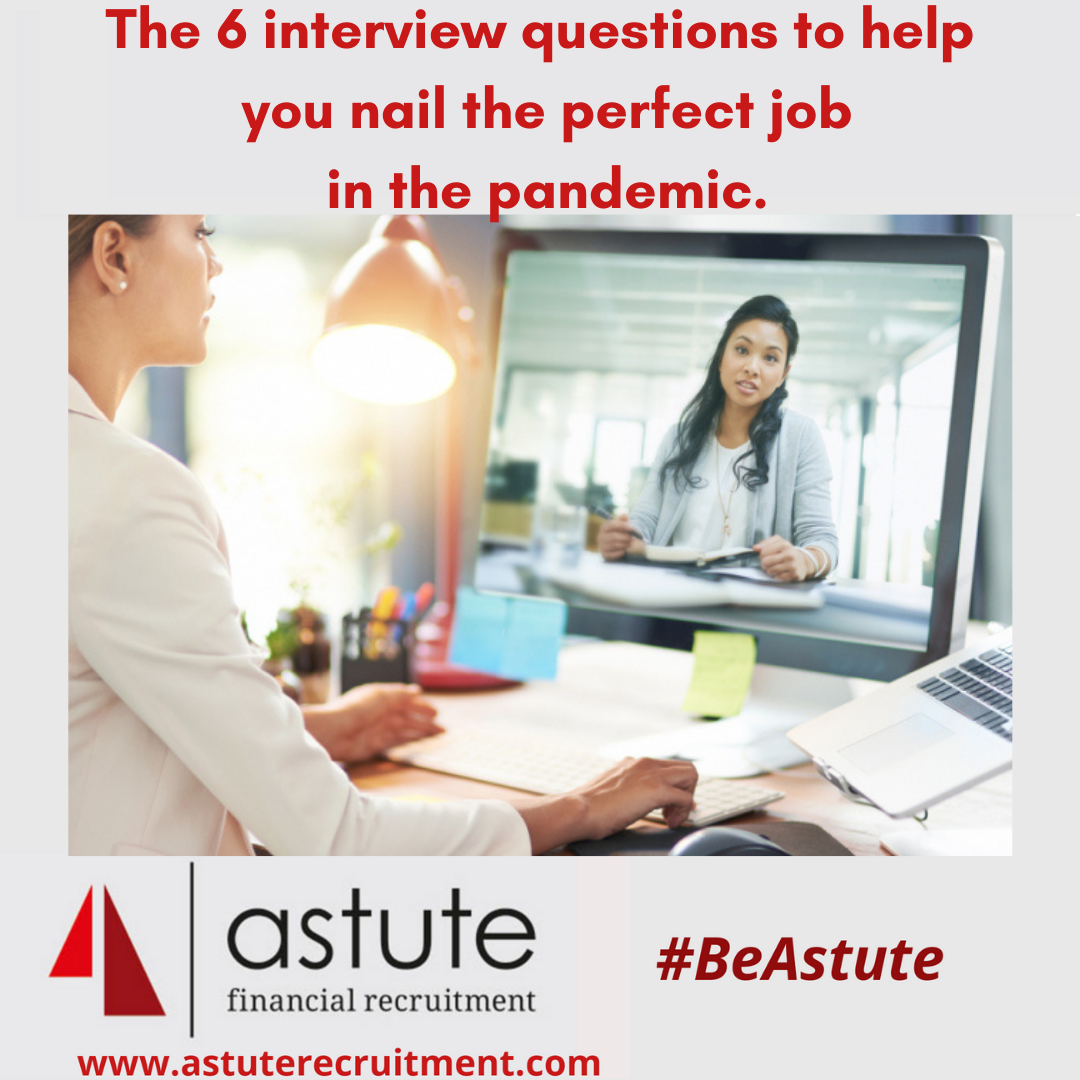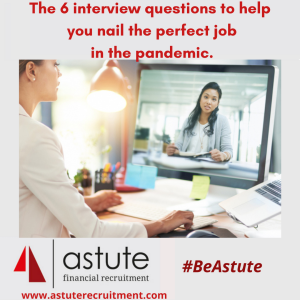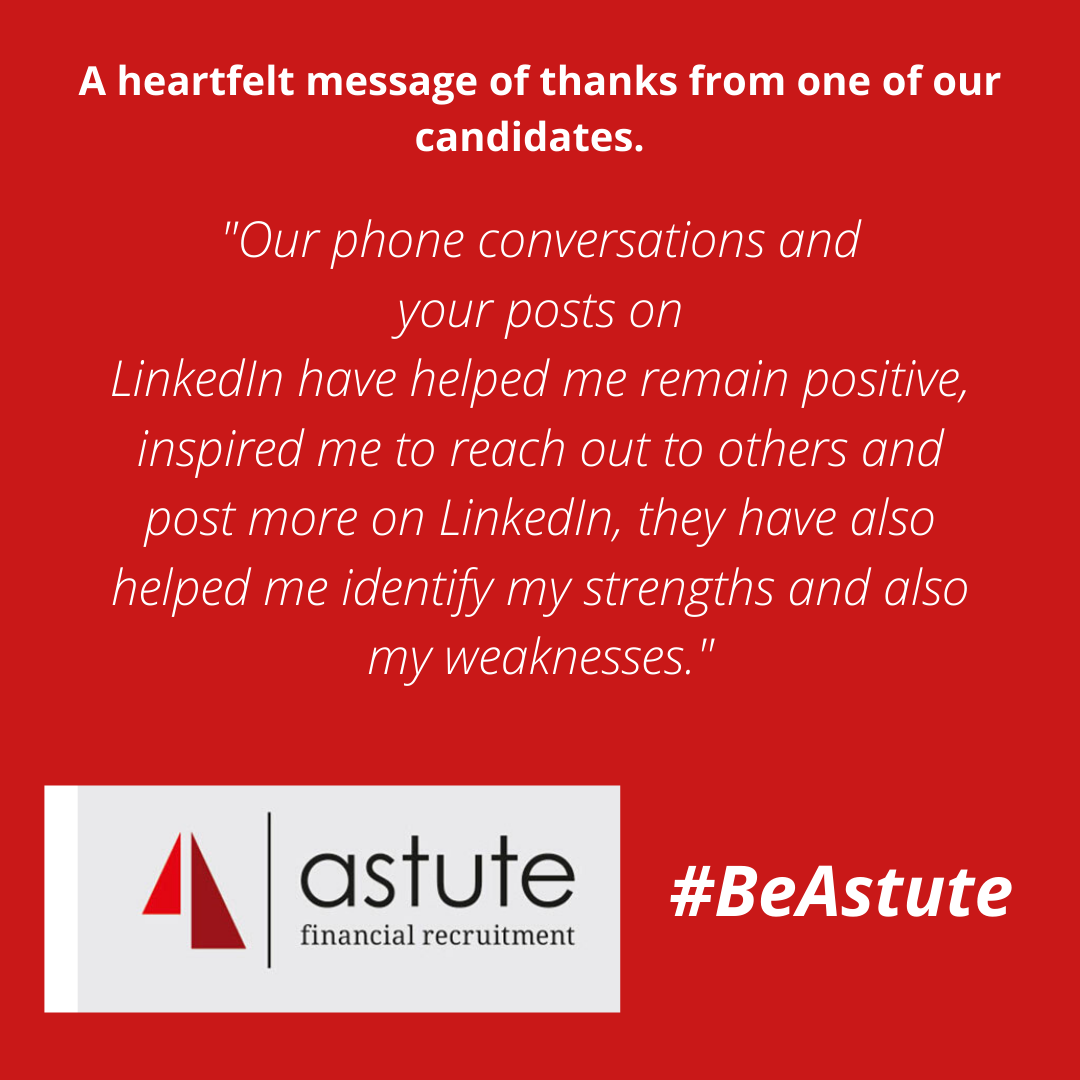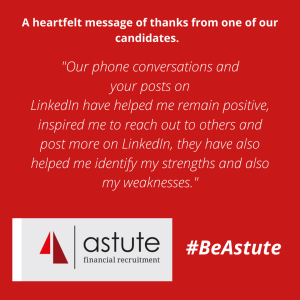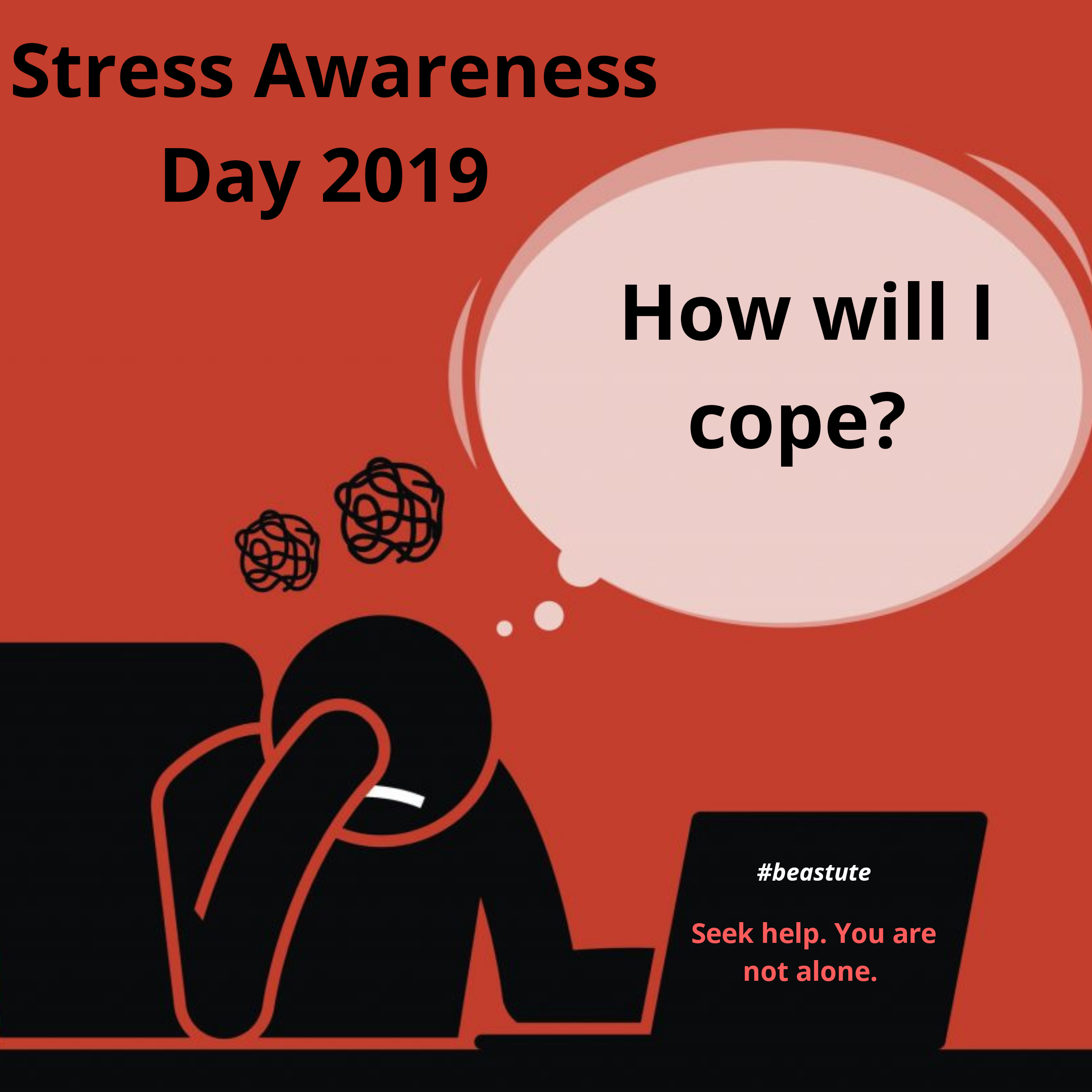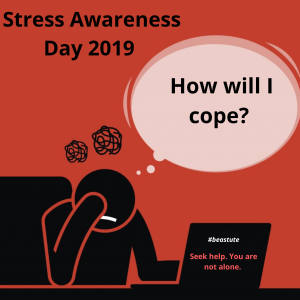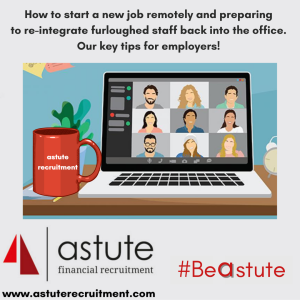 How to settle into a new job & prepare to return to the office… They aren’t that different!
How to settle into a new job & prepare to return to the office… They aren’t that different!
Settling into a new job in lockdown – and preparing for a return to the office are not that different. We help highlight tips on transitioning employees back to the office, or wfh after furlough.
Cast your mind back 12 months. The first lockdown meant businesses, and employees were in survival mode. Most employers relied on the Government’s furlough scheme to remain in business, and keep their talented teams together with little or no revenue. But, as things began to settle down, companies pivoted, adapted, and improvised creating new ways to operate.
Hiring slowly returned.
Now, as we look ahead with optimism returning to the recruitment sector we’ve seen increasing demand for accountancy professionals at all levels. From transactional to qualified and part qualified accountants, Finance Analysts, Management Accountants, finance business partners, and more.
The Labour Market Outlook from the CIPD revealed overt half (56%) of employers planned to recruit in Q1 2021. We’ve certainly been busy.
With recruitment appetites returning, successful candidates have been faced with the challenge of starting a new job whilst in lockdown. How have they coped?
Starting a new job remotely via Ms Teams, Zoom or other.
Starting a new job is a daunting prospect at the best of times, but being removed from the usual office workplace has made it an almost surreal experience.
Jessica Doyle who joined The Irish Times digital team during the first lockdown said this of the strange situation: “The funny thing about starting a new job remotely during the coronavirus pandemic is that all the usual social rigmarole of the occasion goes out the window.
“Everything you learn about making a good first impression – give a firm handshake, introduce yourself to everyone, make eye-contact – means nothing as you’re reduced to a disembodied head on a screen.”
The connectivity provided by online platforms including Zoom and Microsoft Teams has been a critical tool working from home, but nothing totally replicates face to face human interaction when you are trying to integrate in a new environment.
In Lockdown 1.0, the Zoom craze was a catch-all, adopted by all with huge enthusiasm.
Companies held online events. Quiz nights and virtual drinks became routine.
However, as time dragged on, ‘Zoom fatigue’ set in, with online socialising becoming rarer.
Now as we near the end of lockdown 3.0, many are admitting It has become harder to make connections in this latest lockdown.
Think of a pre-covid first day in a new job. At your new office, you would be bombarded with new information, meeting too many people all at once.
Usually you get a bit of time at your new desk to chat to your new office colleague(s), or accept an invitation to join them at lunchtime and bond.
This is the biggest challenge for new starters, to gain sense of belonging without spontaneous office chit-chat – the so-called ‘water cooler’ moments.
Instead, faced with a screen full of strangers, it’s harder to build personal relationships. Virtual conversations can be stilted & open to misinterpretation. In bigger groups, the louder characters tend to dominate virtual group discussions.
One saving grace of Zoom is that, at least, you can see everyone’s names at the bottom of their screens, avoiding first-day embarrassment of forgetting your new colleagues’ names! 🤣🤣
It is understandable to feel a bit of an outsider without physically meeting colleagues. You could easily assume everyone knows each other well (often incorrectly) and that you are on the fringes. An office or workplace is a social environment. Taking the social aspect away, can create feelings of loneliness and isolation.
Add to this the nagging worry about whether you are making a good impression. Away from an environment of instant feedback, how can know how you are doing?
Stanford University Professor Nicholas Bloom states how new staff struggle with unspoken rules: – from, ‘How many hours do people really work?” to, “When is it acceptable to take a break”, and “What do I wear on my first day?”.
Bloom raises the issue of ‘over-communication’. Where a new recruit will endlessly send unnecessary emails and Slack or WhatsApp messages just to highlight the fact that they’re still there.
Its never been so vital to have an onboarding plan, AND a ‘reset’ for existing staff returning to the office.
As it is so much more difficult for new employees to integrate, it is incumbent on the manager or business owner to implement an effective onboarding process. Extra thought needs to go into integration of new starters. From installing company ethics and ways of working, as well as the specific requirements of the job role.
Global management consultants, ‘The Boston Consulting Group’, calculates that companies that have effective onboarding processes in place achieve 2.5 times more revenue growth AND 1.9 times the profit margin as opposed to organisations with poor onboarding strategies.
Employee onboarding is a series of activities which educate new hires how to get to know their team and learn about the company’s attitudes, methods, rituals, and tools. For a new employee it’s an opportunity to get used to a unknown environment.
Onboarding can consist of formal training, workshops, and video calls, as well as shadowing people on the team and organised introductions. It can be a long, immersive process that lasts several months after initial induction sessions.
While a line manager may be the direct source of onboarding, the process should include meeting colleagues, by arranging video calls or assigning a ‘buddy’ to the new hire to provide vital support in those initial months.
A new starter should expect a proper and friendly introduction to the new company, but sometimes the new employee may need to reach out for help. In such a case, it is certainly worth asking a manager for introductions with other team members.
You should never be left alone to your own devices when starting a new job. If you are, then perhaps this isn’t the firm that deserves your services.
Preparing for the big return.
If all goes well, virtually all restrictions will come to an end by 21st June, and the big work from home experiment will come to an end. Although many people will continue to wfh, some of the time, most will return to the office in some capacity.
It may come as quite a shock.
While some people are counting down the days to freedom, others will be looking at the return with trepidation. Many of us have become quite reclusive during the lockdowns, and the social skills we used to take for granted can quickly become rusty.
Kelly Feehan, services director at wellbeing charity CABA, says, “Returning to the workplace after such a long period of time working from home will be tough for the majority of us. But for the people who started a new job during lockdown, and the working from home period that followed, it’s bound to be an even more daunting experience.”
In many ways, it will be like going through that awkward first day all over again. The only consolation is that everyone will be in the same boat.
Feehan says, “It’s hard to get a true sense of an organisation’s workplace culture when you’re working remotely, so you’ll want to spend some time reading the room and observing the different dynamics between your team members.”
The good news is that we pick up new habits and routines very quickly. Although we have become used to our own company, we are social animals by nature.
So, let’s celebrate! 👏👏👏 It’s nearly time to rejoin the human race and get back to near mormal!
Just make sure your existing staff and any new employees understand your expectations, and can access any help or support they may need.
Mary Maguire is one of the owners of accountancy specialist Astute Recruitment Ltd.
If you would like to see our company updates and industry insights, follow our LinkedIn page : – LI: www.linkedin.com/company/astute-recruitment/
Mary Maguire
Managing Director
Astute | Accountancy & Finance | HR | Office Support
Suite One, Ground Floor West, Cardinal Square, 10 Nottingham Road, Derby, DE1 3QT
T: 01332 346100
M: 07717 412911

 Recruiting the right team will get the right results.
Recruiting the right team will get the right results.





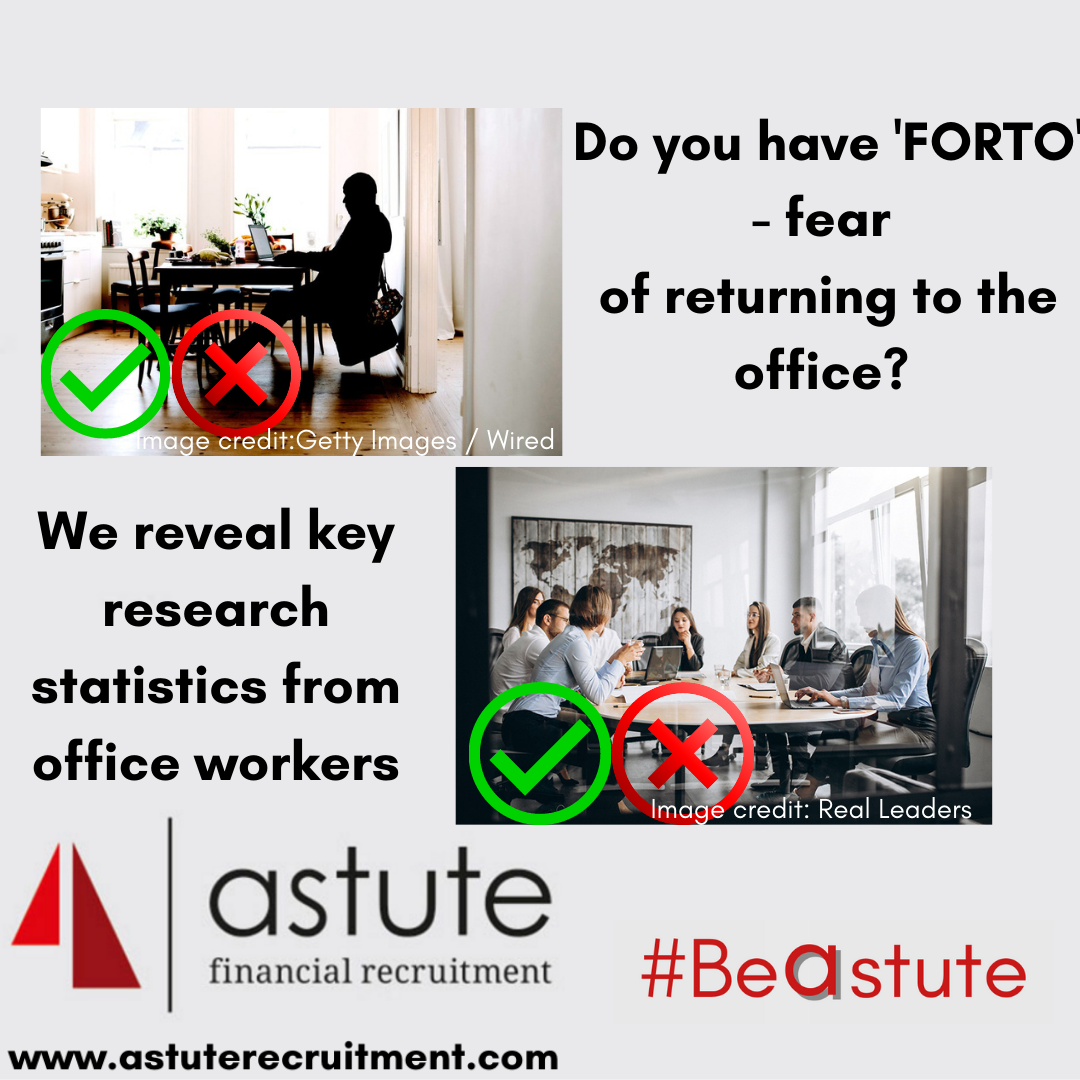
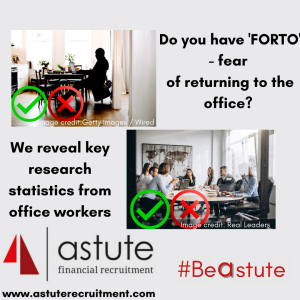
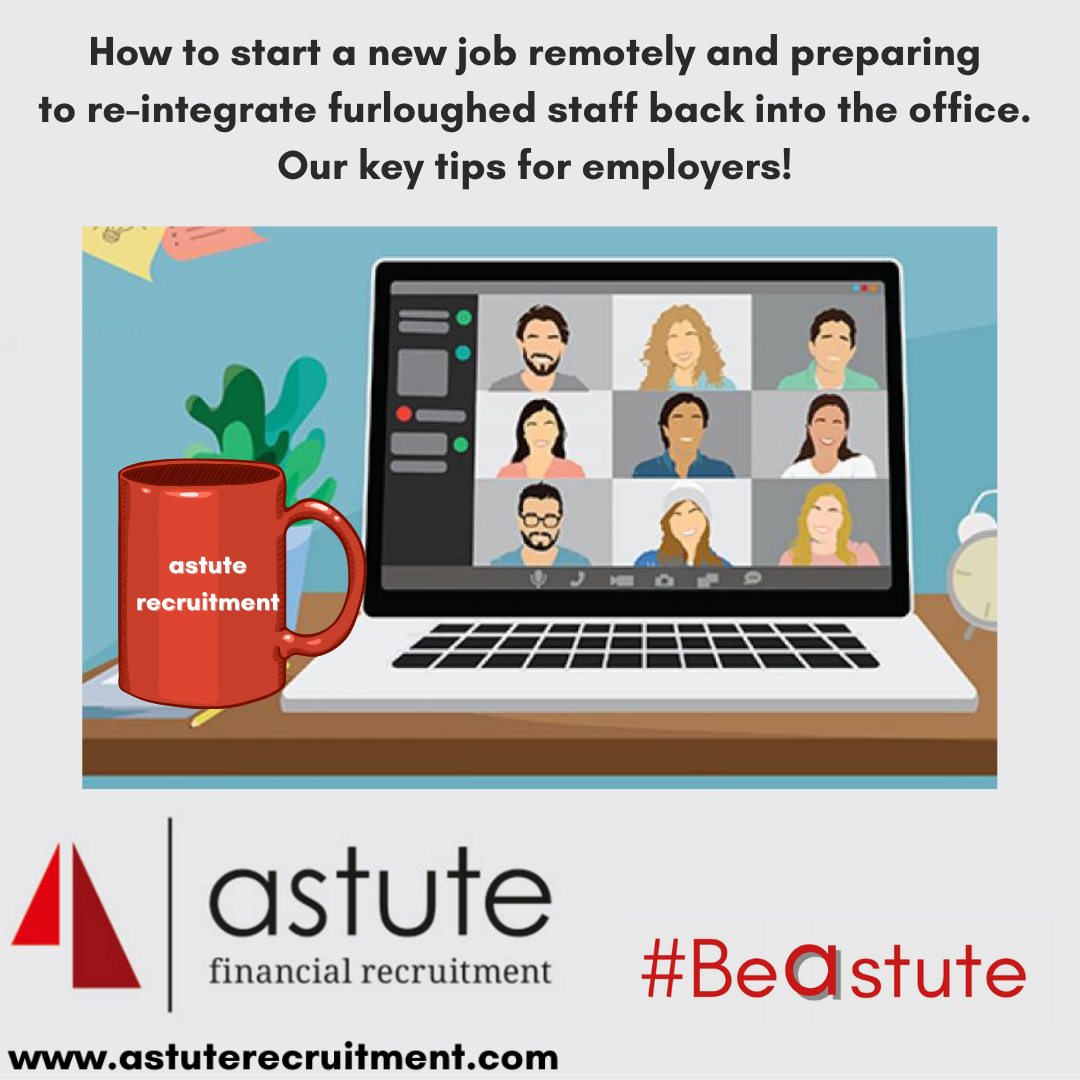
 How to settle into a new job & prepare to return to the office… They aren’t that different!
How to settle into a new job & prepare to return to the office… They aren’t that different!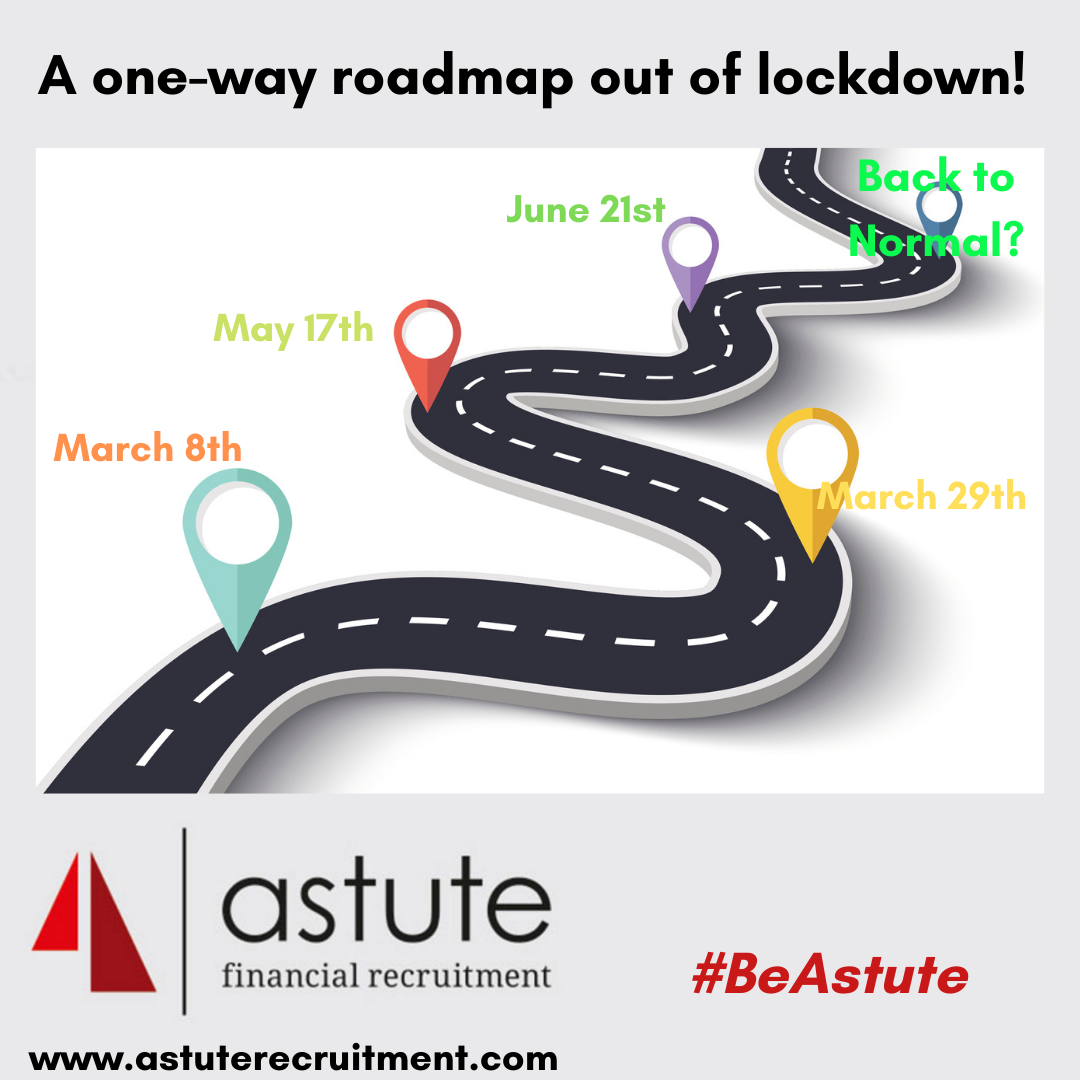
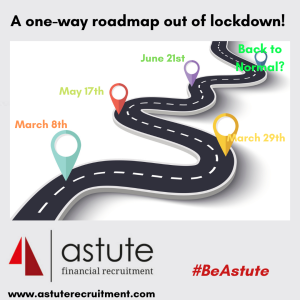 A Roadmap out of lockdown!
A Roadmap out of lockdown!